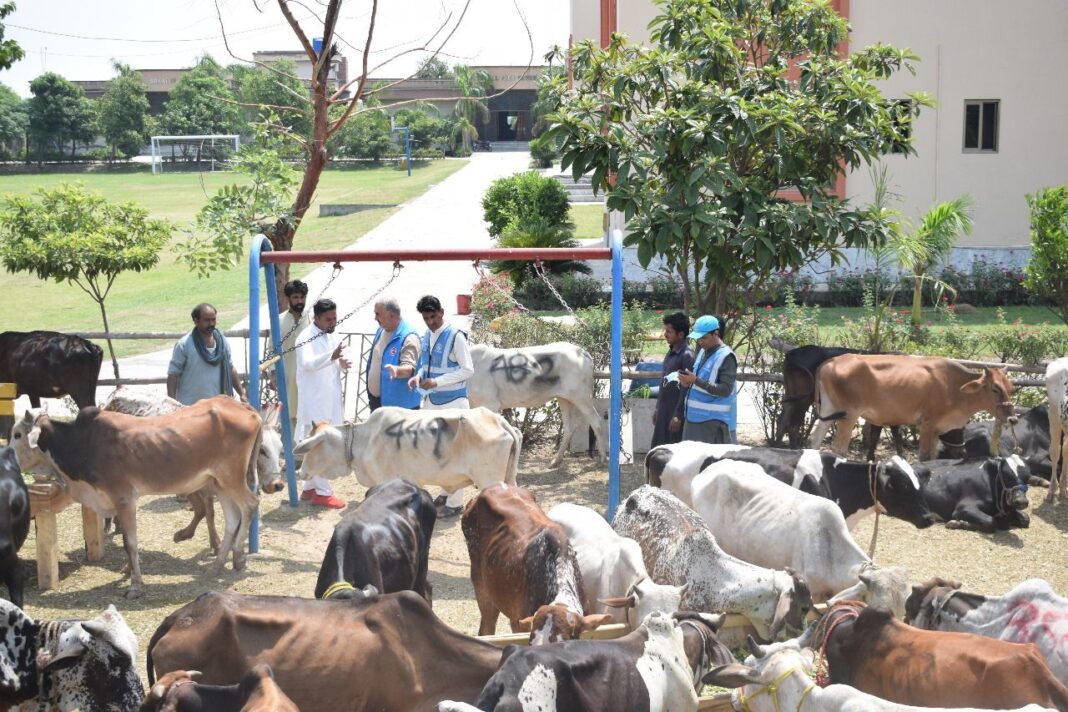By: Rehan Tahir
Each year, the sacred act of Qurbani during Eid-ul-Adha brings with it a spirit of sacrifice, generosity, and a deep sense of connection among Muslims across the globe. For decades, overseas Pakistanis have played a vital role in supporting their communities back home by sending Qurbani shares to Pakistan. However, recent years have witnessed a significant decline in these contributions a change that merits careful reflection.
One of the primary reasons behind this shift is the sharp increase in the cost of Qurbani animals within Pakistan. Just a few years ago, a single share could be arranged for approximately £35 for overseas but Today, that figure has nearly doubled to £80, making it increasingly difficult for donors to contribute in the same capacity. In comparison, several African nations and disaster-affected regions such as Gaza and Yemen are offering Qurbani shares at lower costs, some as low as £35 or £50. This price disparity naturally redirects the attention of many overseas Muslims and Pakistanis toward regions where their contribution goes further and where humanitarian needs are more immediate and visible.
In Pakistan, a standard Qurbani share from some organizations is priced around PKR 28,000 per person. While this may reflect the actual market realities, it remains unaffordable for many, especially when considering families who wish to contribute multiple shares. Rising inflation, currency devaluation, and increased operational costs have further compounded the situation. Additionally, regulatory frameworks such as public procurement rules (PEPRA) have inadvertently added to the financial burden. Charitable organizations must now publish tenders for livestock procurement, a process that includes contractor margins of up to 20%, inevitably increasing the overall cost of each share.
Meanwhile, international NGOs have adopted their own operational standards for Qurbani programs due to delivery of animals in farlong areas, streamlining their processes and often operating in low-cost regions. Their ability to deliver cost-effective solutions, particularly in emergency-affected areas, makes them more attractive to donors who want to ensure their sacrifice reaches the most vulnerable communities.
Despite these challenges, there is an opportunity for Pakistan to revitalize its Qurbani landscape. This is a moment not for despair but for renewed commitment. Religious practices like Qurbani should be preserved with full zeal and zest, keeping their spirit alive within our borders. A national dialogue involving community leaders, policymakers, and civil society could help in reviewing existing regulations that inadvertently discourage charitable giving. There is also a need to explore alternative models, such as local community-based Qurbani projects or subsidized schemes supported by the diaspora, that ensure transparency, affordability, and impact.
Moreover, promoting awareness around the value of performing Qurbani within one’s home country can also play a crucial role. It is not only about fulfilling a religious obligation, it is also a means of directly supporting local farmers, butchers, and countless workers who rely on Eid-related activities for their livelihood.
The writer is a philanthropist based in Islamabad.






